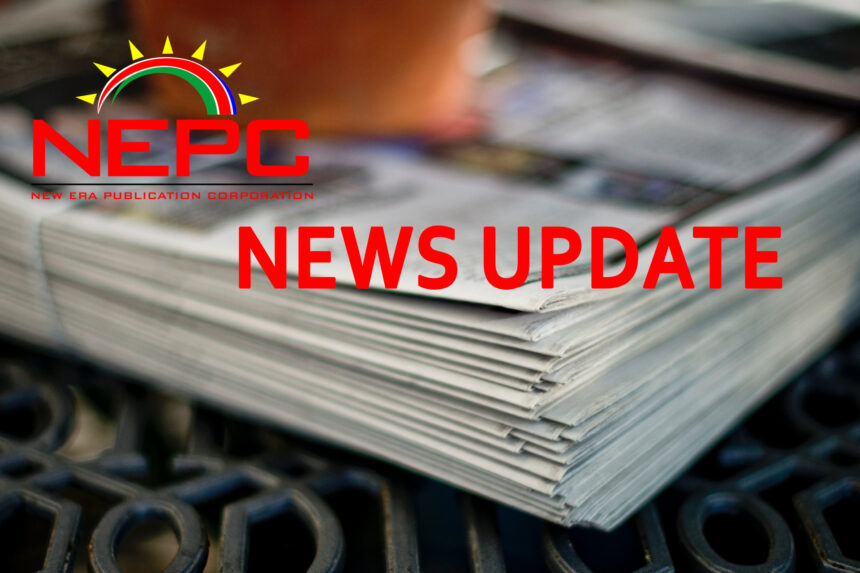Agriculture minister Calle Schlettwein has accused South Africa of over pricing sugar sold locally and of taking advantage of an agreement that prohibits Namibia from buying sugar from other countries.
Schlettwein made these comments during an official visit in the Otjozondjupa region where he visited Namib Mills in Otavi that repackages sugar imported from South Africa through the Southern African Customs Union (SACU).
Namib Mills buy sugar through the southern protocol and SACU. As such, the agriculture minister noted this is causing a pricing problem when Namibia imports sugar from South Africa (SA). He thus emphasised that Namibia does not benefit from the export price parity compared to SA prices exported beyond SACU. This, he said, is to Namibia’s disadvantage.
“However, South Africa has been taking advantage of this agreement that they over price the sugar. Apart from that, the agreement doesn’t allow Namibia or others to buy sugar from elsewhere but only to buy surplus sugar from South Africa – which is costly,” Schlettwein explained.
He explained that Namibia, Botswana and Lesotho are SACU countries that should drive a system where they at least get to export parity prices in cases where there is a shortage of supply.
“That is a big stumbling block if SA cannot supply. We are still not allowed to buy at export parity outside the South African market as we must still buy at surplus prices and this is an unfair situation that needs to be corrected.”
Moreover, agriculture ministry spokesperson Jona Musheko, stated Namibia currently pays rebates to those in the business, adding it should be fair for Namibia to buy elsewhere particularly during uncertain times. “These negotiations are still ongoing,” said Musheko.
Overall, the objective of the ministry’s visit is to engage several stakeholders in the industry. Through this, the ministry aims to familiarise itself with the entire value chain in agriculture. Schlettwein further commented that instead of fragmentation of the sector, there is a need to consolidate it.
He noted Namibia is in a process of a significant paradigm shift in policies towards self-sufficiency, so it remains vital to engage stakeholders on how ready they are in terms of necessary value chains.
According to the Namibia Statistics Agency (NSA) trade statistics for August 2022, sugar was among the top five imported products with a share of 3.1% of total imports.
During the month of August 2022, SACU continued to be the largest source of imports for Namibia, contributing 44.2% of imported goods and supplied Namibia mainly with motor vehicles, sugar, molasses and honey as well as alcoholic beverages.



